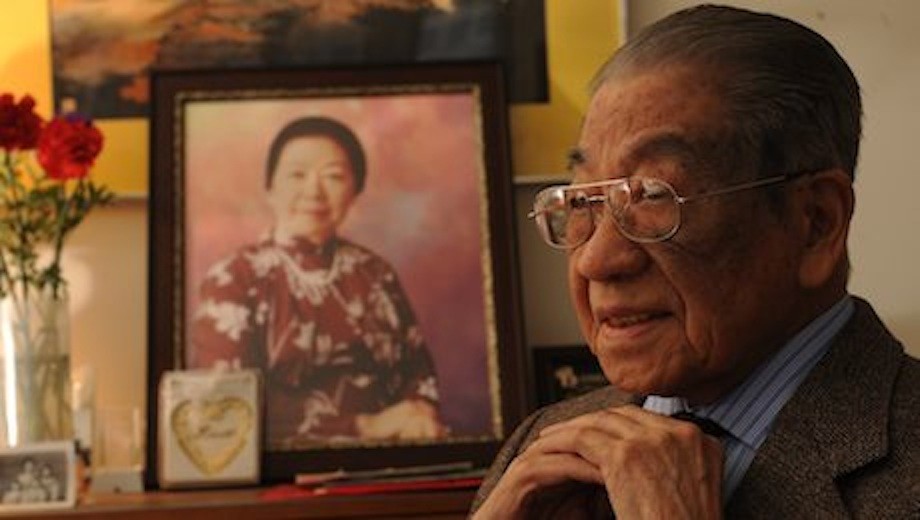“I was born during the reign of the last Emperor of the Imperial Dynasty...” It sounds like the beginning of a novel, but with these words, Tsuen-hsuin Tsien, AM’52, PhD’57, opens his memoir. Tsien, who recently turned 100, is an emeritus professor in East Asian Languages and Civilizations and former curator of the University Library’s East Asian Collection. During his lifetime, Tsien has witnessed tremendous changes in his native China. He has also made a major impact on the field of East Asian studies since coming to the University in 1947.
To the delight of friends, family, and colleagues, Tsien—who officially retired in 1978—remains active as a centenarian scholar. From his home in Hyde Park, he keeps in touch with former students “almost daily” through correspondence, conversation, and occasional dinners. “About a dozen of my former students are now involved in editing and publishing the new festschrifts in English and Chinese in commemoration of my 100th birthday,” he told Tableau in a recent e-mail interview, “besides three earlier ones for my 80th and 95th birthdays.”
In late February, Tsien gathered with well-wishers to celebrate his birthday with a Chinese banquet. Turning 100 has also afforded him a chance to reflect on his accomplishments. Over a distinguished career, Tsien published 17 monographs and more than 150 articles in English and Chinese, As a young librarian, Tsien risked his life to spirit rare books from Shanghai to America.including the classic studies Written on Bamboo and Silk (1962) and Paper and Printing (1985). As a professor and librarian, he trained more than 30 graduate students who are now active scholars. He also helped to build the University’s East Asian Collection into one of the most comprehensive and distinctive in North America.
In 1941, as a young librarian in China, Tsien risked his life to spirit rare books from the National Library's office in Shanghai to the United States for safekeeping. “Had the Japanese occupying forces discovered this subterfuge, and that I had personally been responsible in this task, I would most likely have been executed,” Tsien writes in his memoir. Instead, Tsien came to Chicago after the war as an exchange scholar and stayed on for 63 years. “Ten of my family in three generations have studied or worked at the University,” he says, including his late wife, Wen-ching, and daughters Ginger, Gloria, and Mary.
To honor Tsien’s life and scholarship, in 2009 a group of family, friends, and former students established the T.H. Tsien Research Fund for Chinese Studies. The endowed fund, to be administered by the University’s Center for East Asian Studies, will support faculty research. Looking toward the future, Tsien sees new opportunities emerging with the opening of the Center in Beijing. “It will formalize and institutionalize the exchange of scholars in different fields, and allow alumni throughout the region to have a closer relationship,” he believes. “It will definitely benefit China studies at the University of Chicago.”


Comments
Wow. He has an amazing story.
Wow. He has an amazing story. What an imposing start to a memoir. He definitely has some inspiring accomplishments.